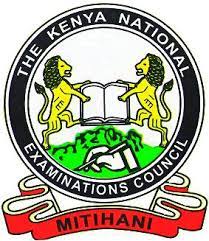
TOPIC FOUR: COMPUTER PERSONNEL
THEORY
Specific Objective
By the end of this topic, the trainee should be able to describe the roles and skills requirements expected of various computer personnel
CONTENT
Roles and skills requirements of various computer personnel
- Computer programmers
- System analysts
- System designers
- Others
Attributes/ Skills necessary for Computer Personnel
- Analytical skills
These will enable systems analysts to understand the organization and its functions, which helps him/her to identify opportunities and to analyze and solve problems.
- Technical skills
Will help systems analysts understand the potential and the limitations of information technology. The systems analyst must be able to work with various programming languages, operating systems, and computer hardware platforms.
- Management skills
Will help systems analysts manage projects, resources, risk, and change.
- Interpersonal skills
Will help systems analysts work with end users as well as with analysts, programmers, and other systems professionals.
Responsibilities/Roles of a Computer Programmer
- The main role of computer programmer the development of programs.
- Programmers also correct errors by making appropriate changes and then rechecking the program to ensure that the desired results are produced.
- Another specific duty of a computer programmer is to perform monitoring tasks to ensure that the programs which they develop work as they are supposed to. This is done by reviewing programs on a frequent basis and making adjustments as are necessary to ensure the proper working of a computer program.
- The computer programmer may also be the individual who is responsible for providing technical support to those who use the computer programs developed by the individual and his/her company.
- Programmers compile and write documentation of program development and subsequent revisions, inserting comments in the coded instructions so others can understand the program.
- Consult with managerial, engineering, and technical personnel to clarify program intent, identify problems, and suggest changes.
- Perform or direct revision, repair, or expansion of existing programs to increase operating efficiency or adapt to new requirements.
Responsibilities/Roles of System Analyst (check)
- Interact with the customers to know their requirements
- Act as liaisons between vendors and the organization they represent.
- They are responsible for feasibility studies of a computer system before making recommendations to senior management.
- Perform system testing.
- Deploy the completed system.
- Research, plan, install, configure, troubleshoot, maintain and upgrade operating systems.
- Research, plan, install, configure, troubleshoot, maintain and upgrade hardware and software interfaces with the operating system.
- Research and recommend hardware and software development, purchase, and use.
- Troubleshoot and resolve hardware, software, and connectivity problems, including user access and component configuration.
- Write and maintain system documentation.
Responsibilities/Roles of a System Designer
- work with analysts on the feasibility of a conceptual design by taking technical specifications prepared by the analyst and designing system components to meet the set requirements
- draw up detailed design documentation including charts and diagrams that indicate the various components involved
- prepare instructions for programmer implementation
- talk with other team members (analysts and programmers) to ensure functionality according to systems specifications, and develop solutions as problems or issues arise
- design monitoring and performance measurement processes.
- The system designer is also responsible for writing the test plans and co-ordinating with a team of user and system testers to ensure that the system is thoroughly tested.
Responsibilities/Roles of a System Administrator
- Create new users
- Resetting user passwords
- Lock/unlock user accounts
- Monitor server security
- Install, support, maintain and monitor servers or other computer systems
- Plan for and respond to service outages and other problems.
- Install software
- Create a backup and recover policy
- Monitor network communication
- Update system as soon as new version of OS and application software comes out
- Implement the policies for the use of the computer system and network
- Setup security policies for users. A system admin must have a strong grasp of computer security (e.g. firewalls and intrusion detection systems).
- Monitor system performance
Responsibilities/Roles of the Network Administrator
- Designing and planning the network by making choices about network structure and networking protocols
- Setting up the network
- Maintaining the network
- Expanding the network
- making resources available on the network by:
- keeping the network running smoothly by:
- monitoring activity on the network and tuning performance
- troubleshooting the network
Responsibilities/Roles of a Database Administrator (check)
A database administrator’s responsibilities can include the following tasks:[6]
- Installing and upgrading the database server and application tools
- Allocating system storage and planning future storage requirements for the database system
- Modifying the database structure, as necessary, from information given by application developers
- Enrolling users and maintaining system security
- Ensuring compliance with database vendor license agreement
- Controlling and monitoring user access to the database
- Monitoring and optimizing the performance of the database
- Planning for backup and recovery of database information
- Maintaining archived data
- Backup|Backing up and restoring databases
- Contacting database vendor for technical support
- Generating various reports by querying from database as per need.
